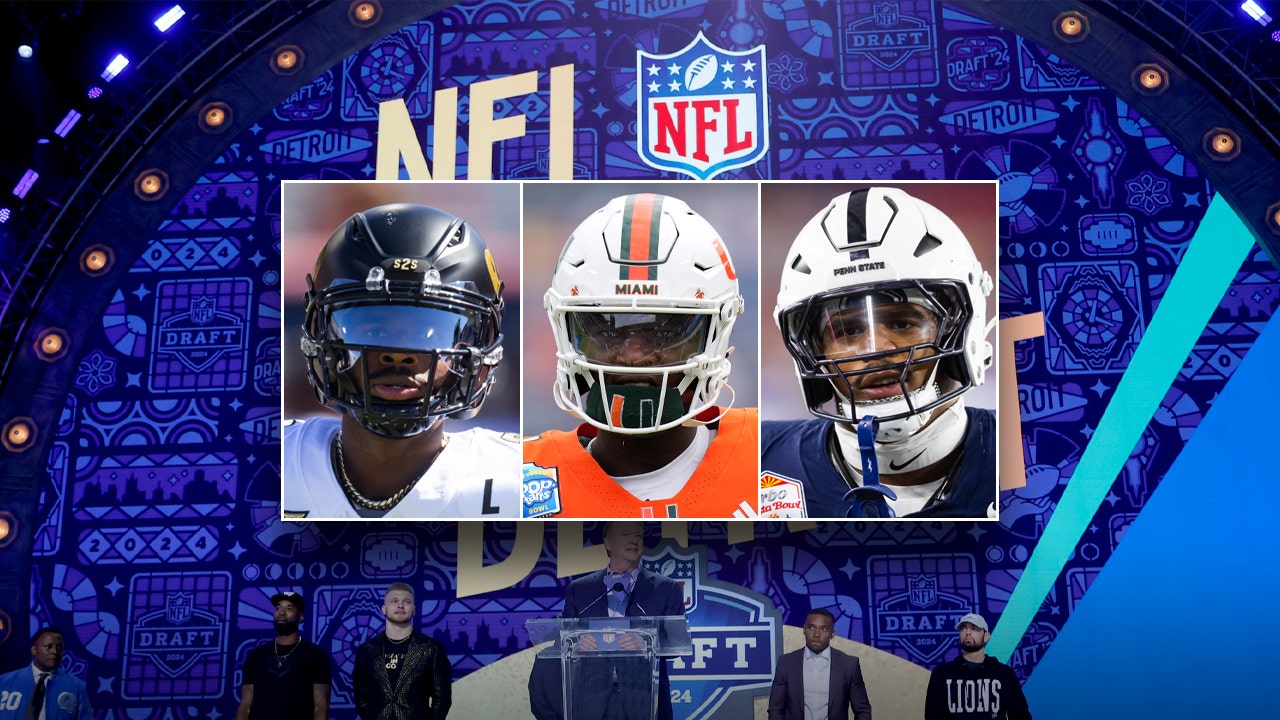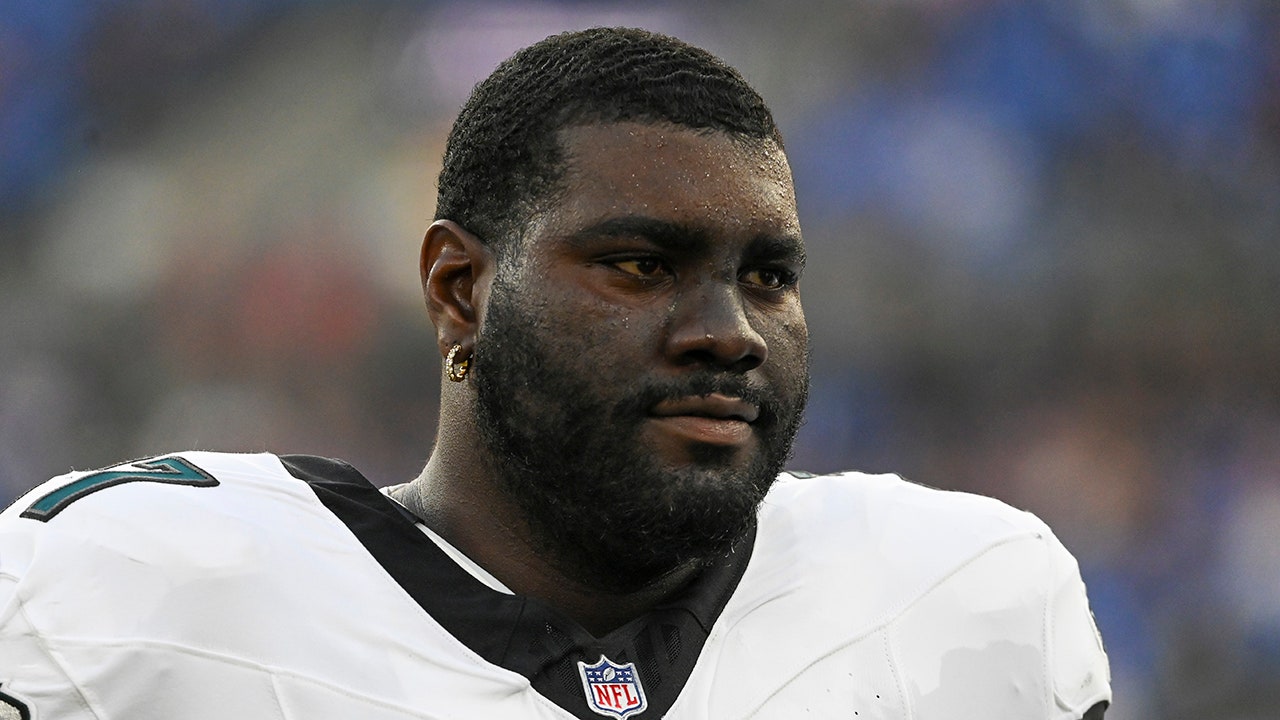Calling Pride jerseys a distraction sends the wrong message, says NHL Agent Bayne Pettinger

Bayne Pettinger has always been immersed in the world of hockey.
Born in Victoria to a family with deep roots in sports, Pettinger began a career with the National Hockey League (NHL) at the age of 21.
Then, after working as an operations manager for the NHL, he became a hockey agent in 2019.
However, despite his professional success, the 36-year-old says he feared he couldn’t be accepted as a gay man in the sport.
“There was always the fear that I wouldn’t be able to live my true life – to be accepted as a gay man – and also be a successful young manager in the game. It was a mystery that kept me in the closet for a long time,” he wrote in one commentary for hockey canada.
During the COVID-19 pandemic, Pettinger returned to Victoria, where he said he found time for introspection and had candid conversations with friends and family about coming out publicly as gay.
With their support, Pettinger decided to come out the athletic, a sports news portal, in November 2020.
All of us at Hockey Canada are immensely proud of @baynep and to the hockey community for the amazing support they have shown him. We hope Bayne’s courage in sharing his story inspires others to know that they too will always have a home on the rink.
He has since gained strong support from hockey fans and has become an advocate for LGBTQ+ representation in sports.
But a recent incident left him discouraged, he says.
Last month, the NHL board of directors decided to ban special jerseys during pre-game warmups on themed nights in the upcoming season. The decision came after some players refused to wear rainbow-colored Pride jerseys last season.
Canadian NHL players Mark and Eric Staal are the latest to join a handful of others refusing to wear Pride warmup jerseys in support of the LGBTQ community. It has sparked a debate about inclusiveness and personal freedom in pro hockey.
NHL commissioner Gary Bettman said he proposed discontinuing the use of special warmup jerseys because the focus on certain players who refused to participate overshadowed the essence of the themed nights.
“That’s just become more of a distraction from the essence of what the purpose of these nights is,” Bettman said.
“We keep the focus on the game. And on these special nights, we’re going to focus on the cause.”
During an interview with host Jason D’Souza on CBC’s All Points WestPettinger shared his thoughts on Bettman’s comment, coming out and the future of inclusion in hockey.
This interview has been edited for length and clarity.
What do you think about the direction of inclusivity from what we’ve seen around the banning of Pride and warm-up sweaters for social causes?
I didn’t like Bettman’s words that it’s a distraction because five of the 700 players in the NHL decided not to wear a Pride jersey that has a majority vote, when it’s really the opposite.
It’s not really asking the players what’s right and wrong, and we’ve banned some players for religious beliefs. Everyone has their beliefs. I’m fine with that. I am not looking to preach or proselytize.
But when hundreds of thousands of dollars are raised for charity for one night for a 15-minute warm-up, I have a hard time with that.
For the league to call it a distraction, 99 percent of the players in the league don’t see it that way and even embrace it, so I think the league has jumped the gun.
What do you think that says about a league like the NHL, when you have a visibly very small minority of players dictating huge social policy issues?
I’m still staying positive about it — we’re still going to do Pride nights, there are a lot of teams I’ve talked to that are still going to wear the jerseys, but just not wear them in the warmup.
Pushing fans away to say you’re not welcome here on an 82 game night sends the wrong message to fans. Banning the sweaters and calling it a distraction is, in my opinion, the wrong message.
All Points West15:36Victoria NHL agent Bayne Pettinger shares his thoughts on the bias against Pride in the NHL
This year, the NHL has been bogged down by backlash against Pride Nights and jerseys. The first openly gay NHL agent, Bayne Pettinger, stopped by the CBC Victoria studio to share his perspective.
The NHL has always had the stereotype of being an old boys’ club, unable to grow. How harmful is this to competition from an economic point of view?
Hockey has a way to go on the cultural side, but I don’t want it to be that block.
We talk about growing the game to have a more diverse fan base, and I find it hard to accept that the decision to ban warm-up jerseys is a step forward for inclusivity and sends the right message to a non- hockey fan.
We can’t even celebrate our differences for 15 minutes, which it really is.
You are the first openly gay NHL agent and I know you work with many players, but you are also friends with many players in this league. What have you heard in recent weeks and months?
They’re kind of discouraged by it because they enjoy it [Pride] nights.
It is ordinary people who put these hockey players on this pedestal. They are ordinary people who are diverse and inclusive, have sons and daughters and want to live in a world where there is no hate or discrimination. They are not happy about it, but we have to keep pushing.
If I was still closeted like three years ago and saw the league ban jerseys, you’d sink a little deeper into your seat.
Just staying focused on the positive because we can go down that 700 five player rabbit hole… that’s not a majority.
Can you take us back three years ago to what that was like for you on a personal level, given the role you play in a huge league like the NHL, to come out?
I had a huge fear that I wouldn’t be able to be successful in hockey and be gay because I didn’t see anyone before me doing that.
Brendan Burke was clearly a role model of mine. I never got a chance to meet him before he died shortly after he came out, but I remember watching that SportsCentre interview with James Duthie when he came out at age 21.
I said, wow! that’s someone like me. I can be an executive in hockey because he pioneered it.
I was a young cop in Toronto and how I really got into it was to throw it around with some of my friends. They said, let’s break down these barriers, and they gave me strength.
My biggest fear was that I wouldn’t be able to work in hockey and be successful and be gay, but in fact it was the exact opposite. For people who think they have to choose between living their truth and playing a sport, no one should ever have to.
We talked about diversity in Canada, and we should have weird chairs at board tables. If a certain percentage of the population is queer, we need to have those seats at the Hockey Canada table.
Everyone always asked me when we would see the first gay NHL player. Well, Luke Prokop, who’s a friend of mine, came six months after I did – he saw my story, so he said, oh, I saw a cop come out now. He’s got young players reaching out to him saying, “Hey man, that’s so cool! You’re signed to the Nashville Predators.”
It’s humanizing and breaking down those barriers so that a young child can say, I can do this. There’s an agent and a player who are gay and thrive in hockey, so why not me?
I thought I had to live my truth, and in fact it’s been the best decision I’ve ever made.
Luke Prokop and Bayne Pettinger join Anastasia Bucsis to discuss the controversy that has surrounded Pride nights throughout the past NHL season.
Are you worried that these recent moves by the NHL might be the same concerns you had three to four years ago in the minds of those who thought they might be able to get out of my locker room, and now might not feel welcome to ?
We’re not going to view a ban on Pride jerseys as “our job is done here.” We continue to push for diversity and inclusion, because that’s how society works.
If we want to have the best players, the best executives and the best media members available, pushing members of the gay community away from the game is not a good business move.
We need to welcome everyone to the game. We need to take advantage of what Canada really is, which is diversity. If we rule that out, that just doesn’t make sense for a business model.





